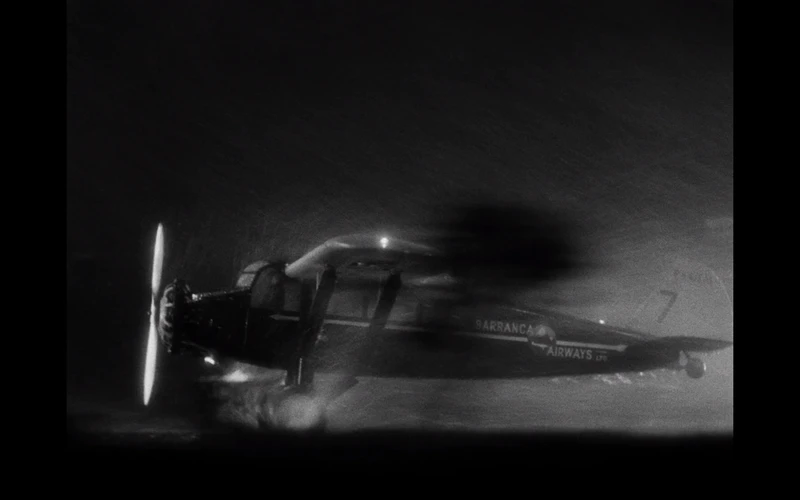Only Angels Have Wings (1939)
| director: | Howard Hawks |
| release-year: | 1939 |
| genres: | drama, adventure, romance |
| countries: | USA |
| languages: | English |
The opening credits are drawn over some Looney Toons background. The music is some upbeat brass band, also fairly Looney Toonsy. The title is stylized "-only angels have wings," as if it's the end of some longer sentence.
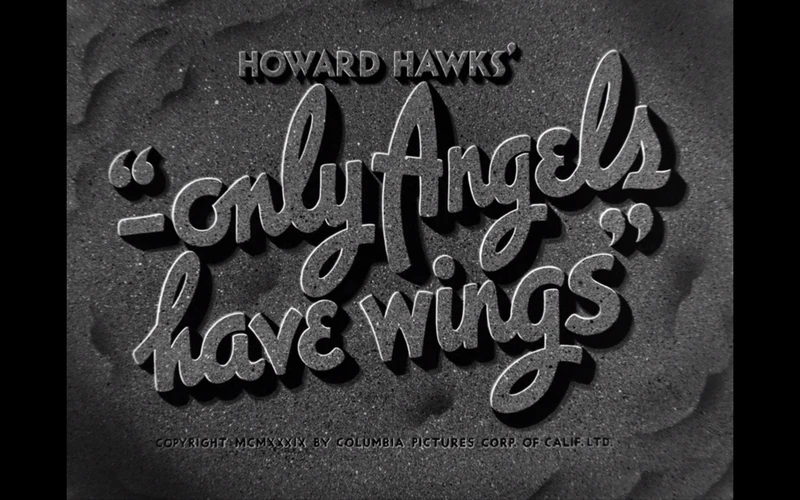
We immediately meet some fast-talkin' city slickers, who are pretty hard to understand with the high speed of conversation mixed with the mediocre quality voice recording and the obnoxiously high background noise. A couple of guys are waiting for the banana boat (literally a boat full of bananas) to arrive in this south american port town. They follow a woman who got off the boat and offer her drinks and dinner; she's happy to be off of the boat, and gladly accepts, though not before insulting the locals and calling spanish "pig latin." They're in "Barranca", which might or might not be in Peru.
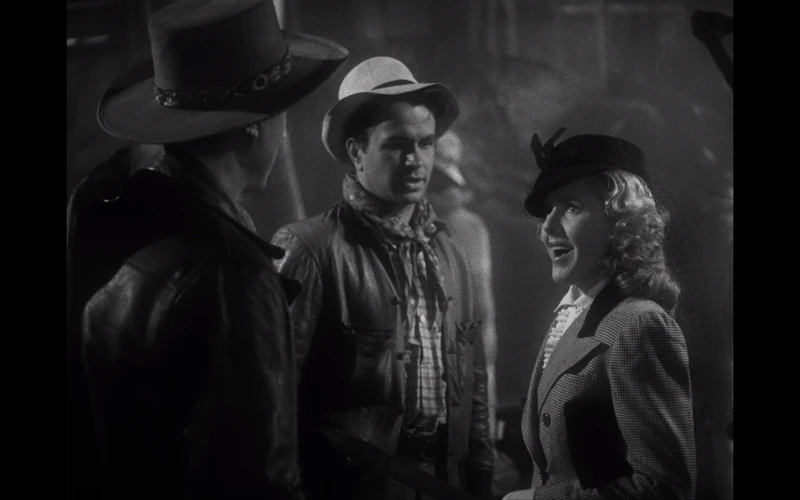
The two guys are pilots, Joe and some other guy, who fly mail bags. The woman, Bonnie, is looking for a job in Panama or something… her intentions aren't really the focus. The bartender, Dutchy, says "well, skål!" but he is clearly German. Dutchy is also the owner of the mail airline, though not the manager; Geoff is head pilot, and manages operations. The airline is nearly bankrupt, but Dutchy doesn't like killing pilots nearly as much as Geoff does so he keeps avoiding risky, money-making ventures. They fight about the morality of sending young men to their inevitable deaths. Dutchy responds with his lines unnaturally fast.
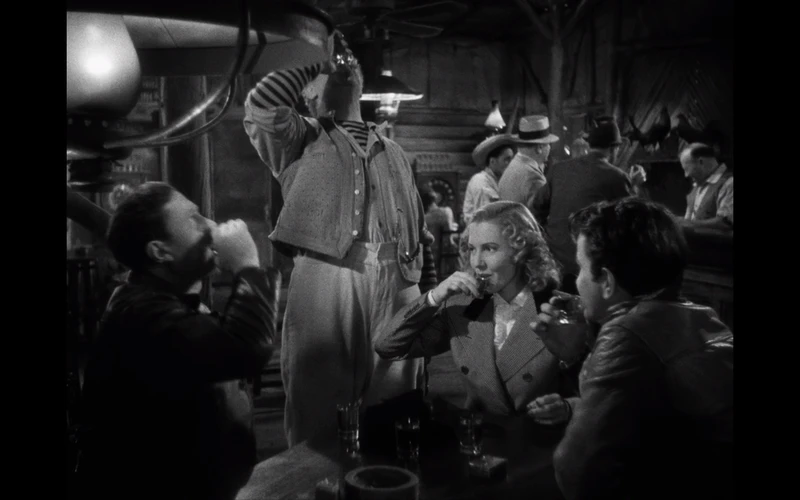
The men wear cowboy hats and pistols and do most of their business in a big, wooden tavern. Howard Hawks forgot and/or didn't care that this isn't a western, so he just filmed it like one anyway.
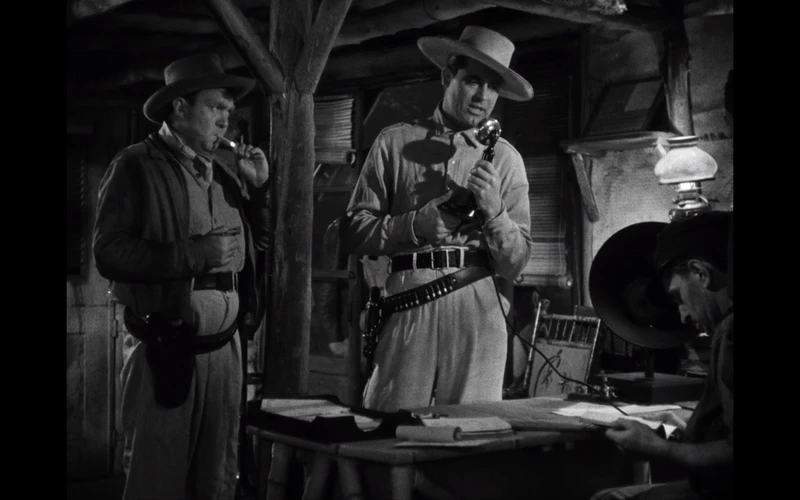
Joe gets called up to fly the mail in the middle of dinner. A very thick fog rolls in immediately after he takes off, and the whole village lines up to help him land in the fog via telephone. They need to hear where the plane is coming from in the fog, so they stop the brass band and suddenly you can hear the dialog clearly. Blindly landing an airplane by ear is excitingly stressful. The first attempt fails. Joe insists on trying again, against the boss's orders, because he wants a chance to hit on Bonnie more. Alas, things don't always work out, and he never gets to hit on Bonnie again.
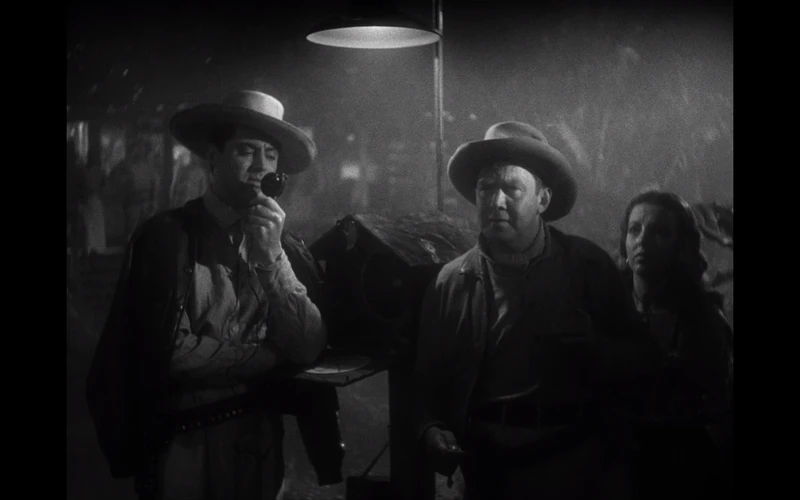
Bonnie is quite upset that Joe was obliterated in front of her eyes, so Geoff shakes her violently until she shuts up. The hard, heartless men make fun of the lady for being sad and shake her some more. Shaking distraught women is so effective!
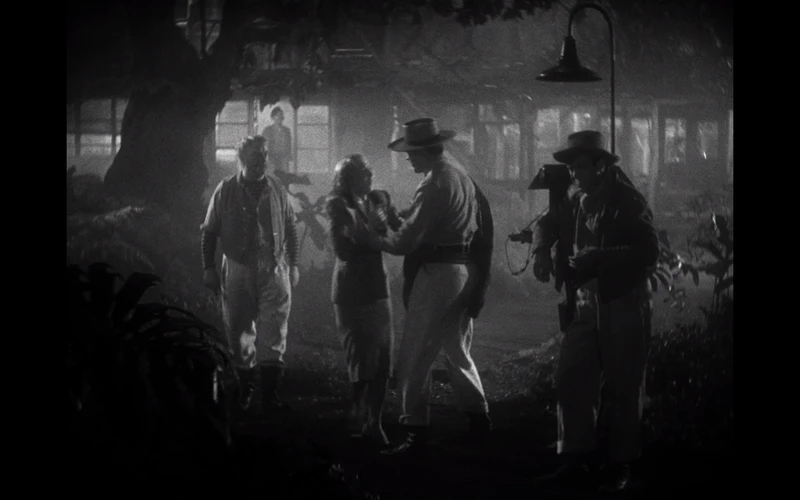
She keeps bringing Joe's untimely death back up, and she gets slightly more considerate and meaningful answers from the men each time. They speak of the unexpected swiftness of death, the pain of loss, and the inexplicable draw of some young men to dangerous professions despite their deleterious effect on lifespans.
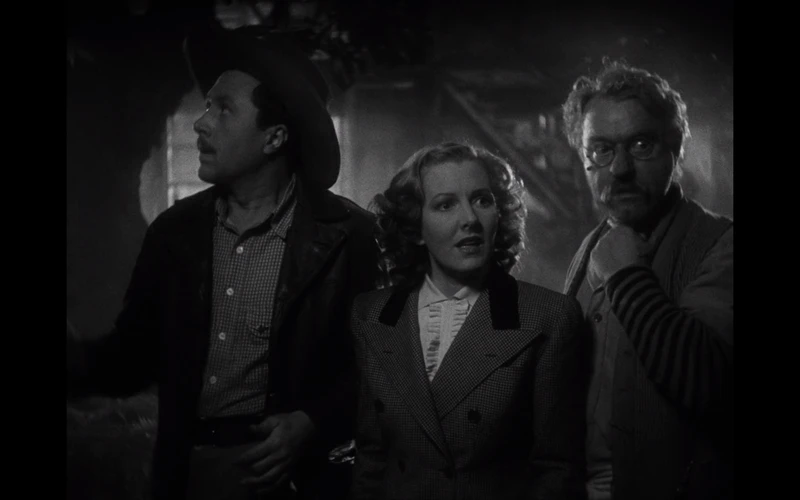
They take a break from all of this heavy talk for Bonnie to wail some jazz on the piano and shoot whisky. She throws in a little "Who's Joe? Never heard of him" aside in the middle of her piano set as a sharp reminder that this isn't a fun, meaningless musical number, but a pointed commentary on how we use raucous distractions to avoid dealing with difficult emotional situations. The moral here, behind a thick veil of toxic masculinity, is that the woman's crime isn't in having an emotional response, but in attempting to address it quickly and head-on. This is an environment where loss is so frequent and unavoidable that the only way the residents can bare to continue is by actively suppressing their instantaneous emotional responses with jazz, booze, and a projected air of manly carelessness.
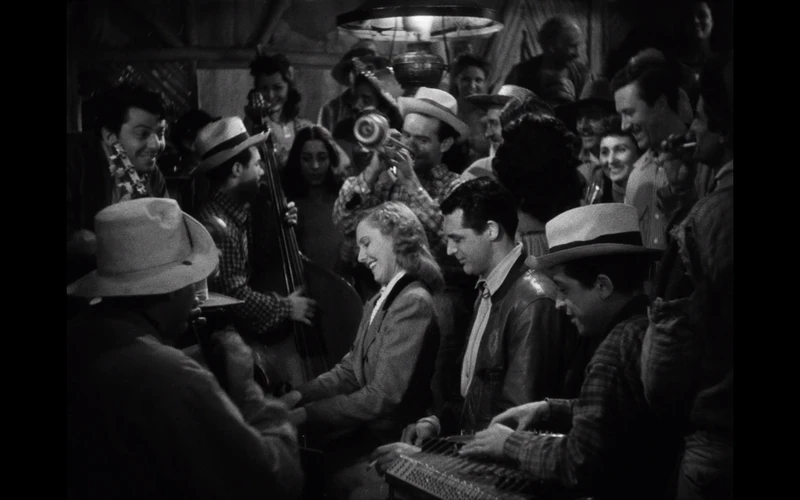
The scene transitions to her playing the empty bar out on a sad tune while Dutchy and Geoff half-heartedly comb through Joe's scant personal belongings; the distractions washed away and the real moods on display.
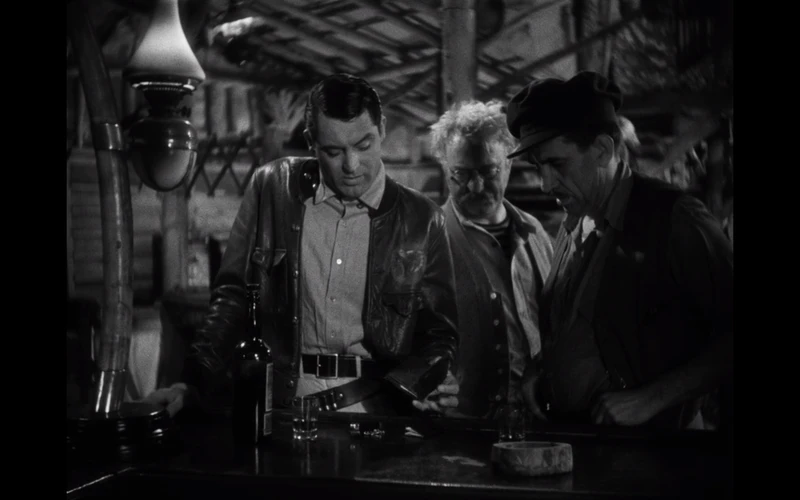
But then we're back to hitting on her endlessly, because you can't let a little death interrupt a good date. The date turns into Geoff talking about how all women are the same, and none of them can handle dating a pilot. When Bonnie asks him about his ex, he says "Who?" in a way that intentionally harkens back to the recent who?'s about Joe – it doesn't matter if it's ex-colleagues, ex-friends, or ex-lovers; the way to deal with emotional pain is to pretend it never existed.
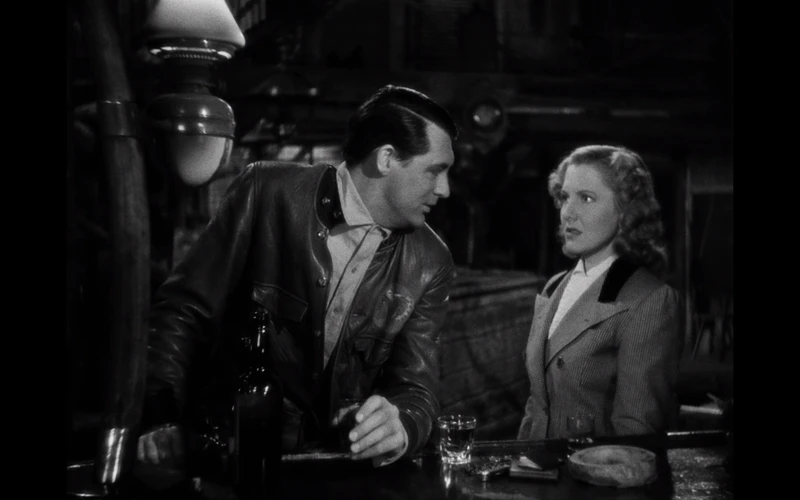
Bonnie digs that he doesn't respect women, so she falls in love. She stares wistfully into the sky as he flies off into the fog. She skips her boat home because she's into bad boys. He dumps her immediately upon his return, because he's only into ladies who stick around for 6 hours and leave.
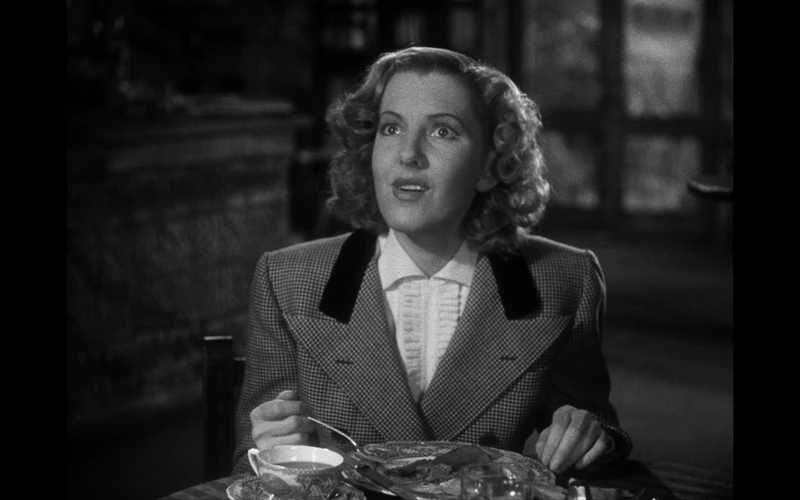
Mr. MacPherson, a new pilot shows up. He looks most unfriendly. And he's a damned dirty liar. Geoff recognizes him as a pilot who hopped out of his plane and killed his mechanic. Nobody cares for him after this revelation. But he's been brought in to replace another pilot, Kid, who has been lying about his failing vision. Despite hating him, they have to keep Macpherson on to have enough pilots.
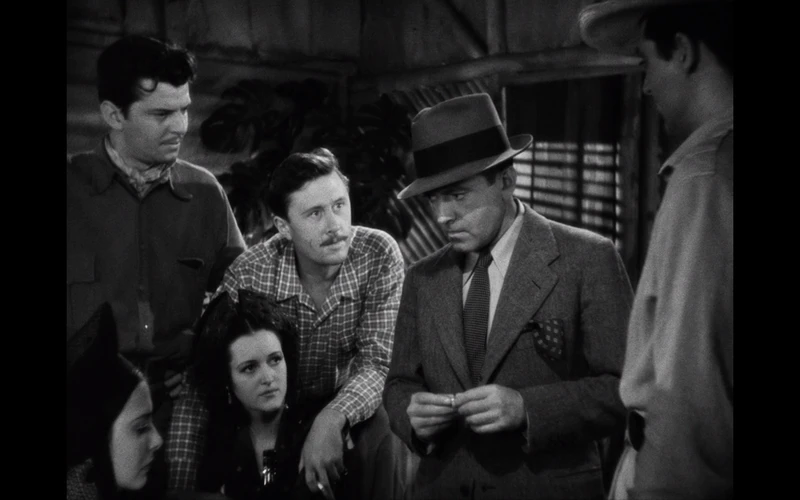
He goes for the first non-foggy flight of the film, and we get to see some cool shots of a little plane zipping around in south american mountain ranges (i.e. the Rocky Mountains, according to Wikipedia). There is a real cool contiguous shot as it banks gracefully around a mountain and lands on a rocky trail at the top. I don't know what is models and what is real, but I guess these are real?
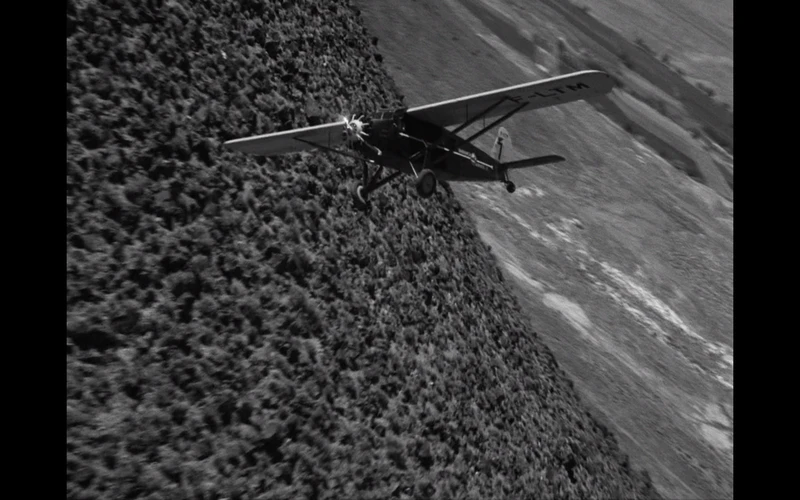
MacPherson's wife is Geoff's ex ("Who?"). She dumped Geoff because he's a pilot, then married a pilot. She dramatically overacts, delivers lines with strange cadence, and doesn't serve too much purpose. Geoff holds her down forcefully and pours water on her head while she screams, and then tells her "you're alright." It's not abuse if you tell them they're fine afterwards. A lot of women in old movies vibrate their heads back and forth whenever they talk, and she is one such head vibrator.
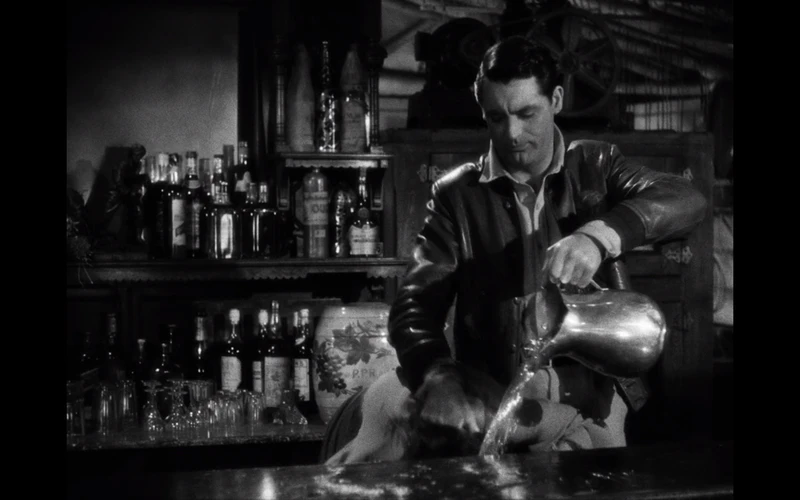
MacPherson flies around with some nitro glycerin, but gives up his delivery attempt and dumps it on a flock of condors instead. No explanation is offered for why one might want to detonate condors.
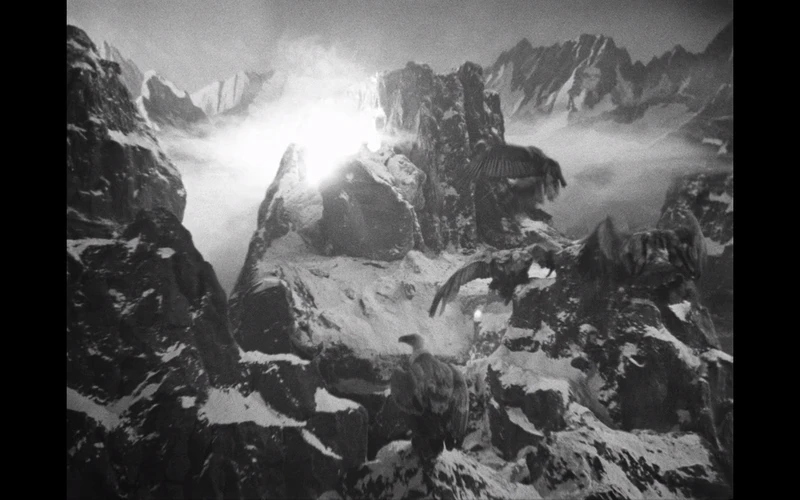
Bonnie sneaks into Geoff's room while he's out. He finds her there and decides he loves her. She gives a little speech about how she knows he's going to die violently and young and she doesn't care. He gets called up to fly in the middle of her speech and she cries and says "I can't let you go," thus proving that all women are liars. She pulls a gun on him and accidentally shoots him, which upsets her even more, but he's not particularly bothered.
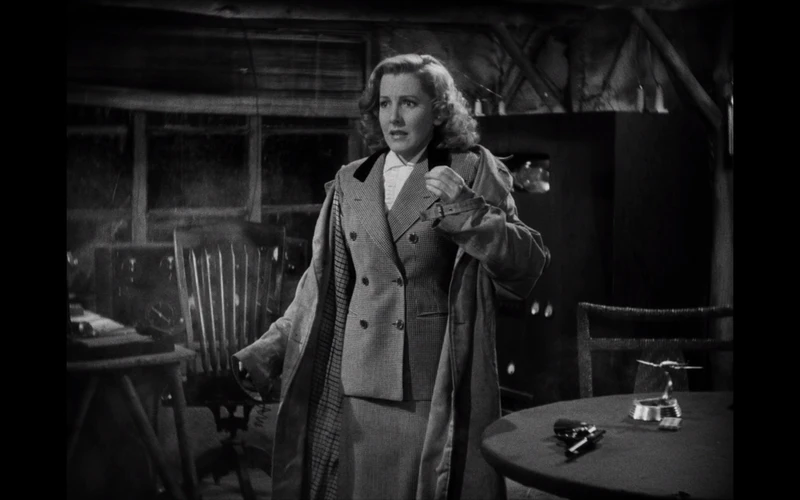
Air traffic control has a donkey named Napoleon in the tower.
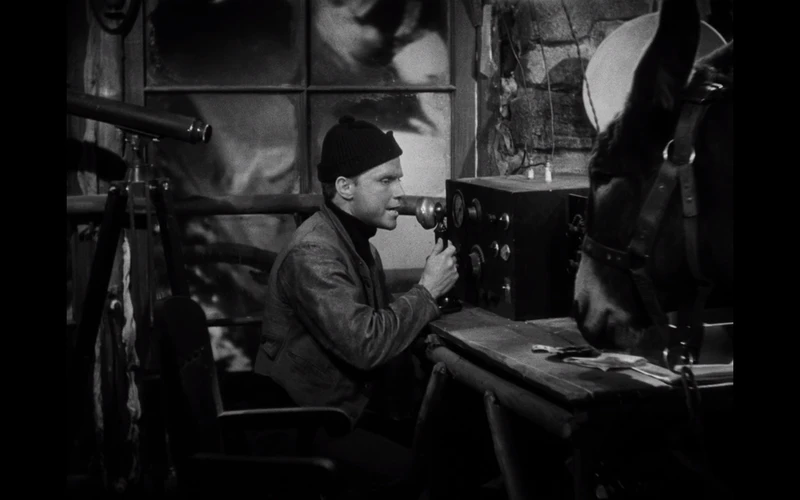
Geoff can't go up with a bullet in his arm, so they send MacPherson and Kid. They test how high the plane can go while sucking on oxygen straws. It can't go high enough to get over the mountains they need to cross, so they disobey orders and decide to fly through the narrow pass in the storm.
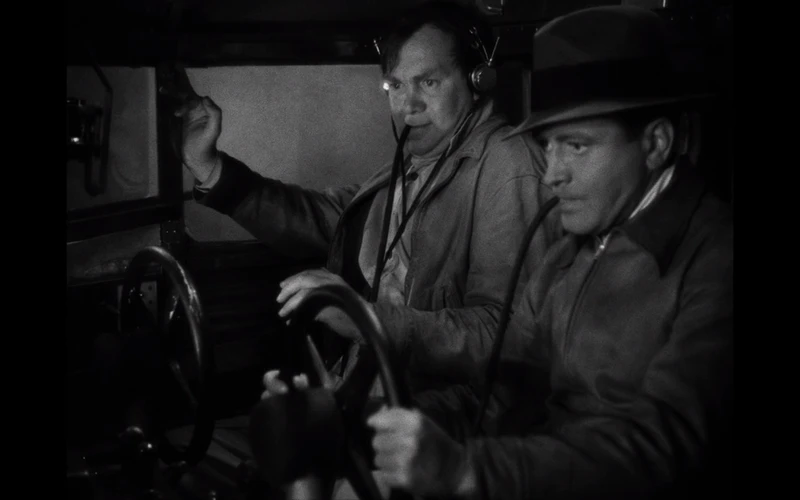
MacPherson flies perfectly, but the condors come back for fiery revenge. "If it 'addn't a-been fer dose boids, we'd-a made it," Kid says as he lays dying on the ground. There's no hiding the sadness this time; nobody mourned the loss of Joe, but Kid's failed flight brings everyone straight down into the dumps.
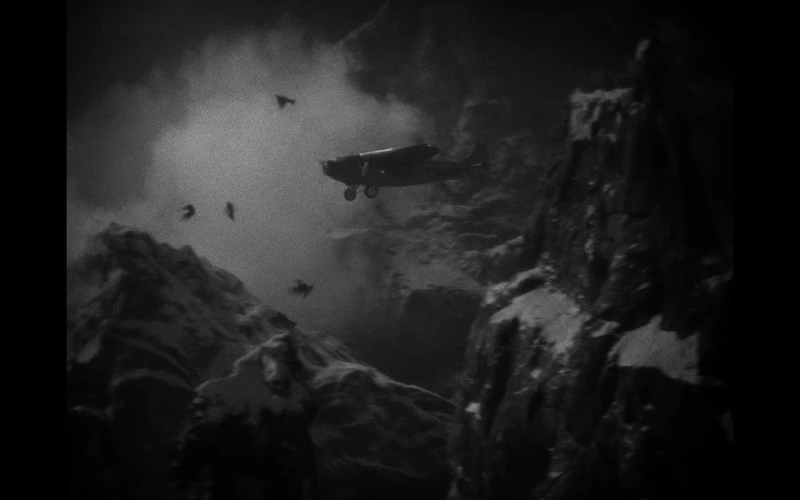
But Geoff needs to get up in the air, and he runs off. Bonnie is all sad and angry because he didn't ask her to wait for him. "I'm hard to get, Geoff. All you have to do is ask me," she tells him, explicitly noting that the hardest thing for a man in this movie to do is to directly acknowledge his feelings. He flips a coin instead of asking, and she falls in love again. Dames.
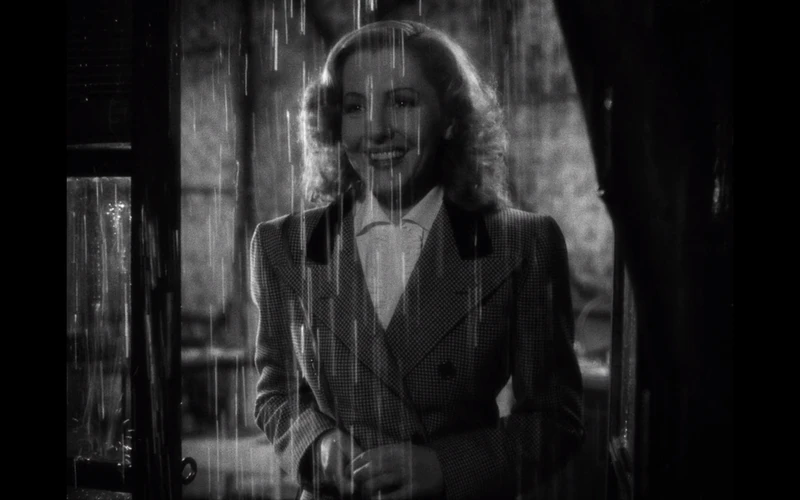
The title "-only angels have wings" is either a sarcastic reference to the fact that all of the pilots are stubborn assholes, or a more general observation that naturally flightless humans surely have no business travelling haphazardly through the skies. Birds, however, exist and are depicted, so we have to assume that birds are, in fact, angels. Angels of death, in this particular case.
